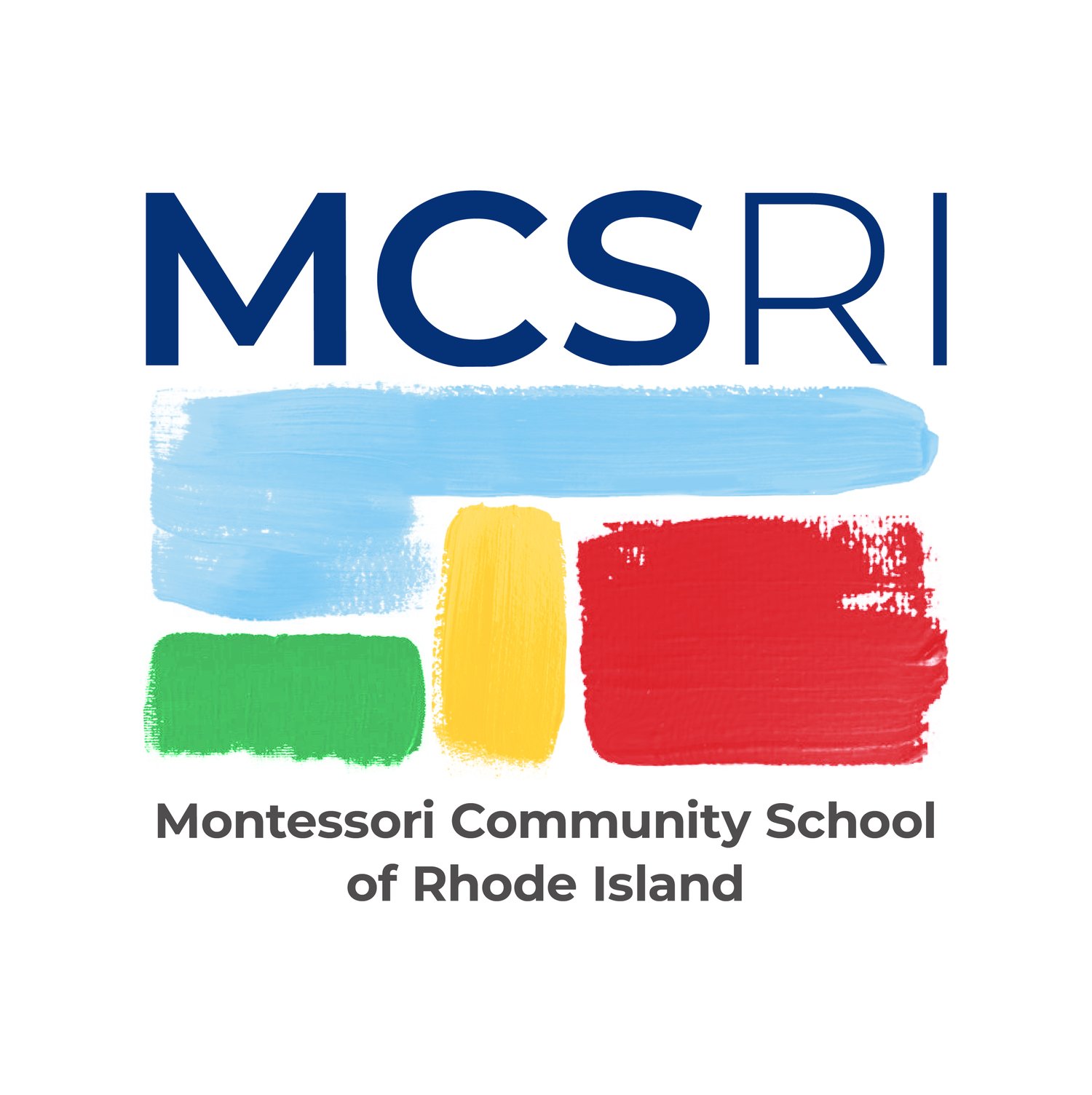Toddler Programs
Toddler Curriculum Overview
The MCS RI Infant Toddler Program serves children 18 months to 3 years old. With safety at the forefront, the environment is prepared to foster the infant’s innate curiosity of the world around them, and the toddler’s innate drive towards independence; caring for themselves they learn many foundational skills for their future academic and social success. One might think, upon entering a Montessori classroom, that it looks like a miniature home or world in which these amazing little people can master themselves.
The classroom is intentionally designed to attract our youngest children to explore and discover their environment. With caring and present adults coupled with prepared environments, the children learn to feel safe to take learning risks and grow at school. The shelves are low with all materials and activities accessible for the children to choose independently. Infants and Toddlers are in, what Maria Montessori would call, the “Sensitive Periods” for language, movement, and order. In this language rich environment, toddlers learn to identify the names of many objects and develop into fluent speakers. To encourage large motor movement, there is a large motor structure and movement games throughout the day. There are many activities designed to enhance fine motor skills development. The daily routine has an overall structure that children learn to anticipate which fosters their sense of security at school. In addition, in Montessori classrooms, everything goes back to its place. This allows children to have a sense of order in their external environment.
Through being actively involved in the daily snack preparation, they learn to eat independently, learn how to pour, scoop, use tongs, spread, and set the table. In addition, there are specific materials set up for further practice of these skills. The whole program is infused with what Dr. Montessori would call, “Grace and Courtesy,” lessons, wherein each child learns to have a deep respect for all life. This is modeled effectively each moment of each day.
A little bit about how it works: Children can choose any material that is on the shelf. If another child is using a material they must wait until they see it back on the shelf. Every material has a place on the shelves. This allows for the child to be independent and successful at choosing activities they would like to do. When a child is finished with an activity, they return it to the same place they found it. This way, the next child can find it. A child can work with any material for as long as they would like to or for as long as they need to. This means that other children learn how to wait; delaying gratification, and encouraging independent thinking and knowledge of self. It also encourages each child to behave in a deeply respectful manner; of the environment, and one another.
The curriculum is child centered, prepares young children for the foundations of academic skills to come, and reflects the development and movement of the children.
Practical Life: helps children develop skills to care for the self and the environment. Fine Motor activities can be found in this area; scooping, sweeping, sponges, pouring, mirror washing, tongs, snack preparation. These skills lead to the ability to write, create, use manipulatives, develop executive functioning, and master life skills.
Sensorial: prepares children to organize, integrate, and understand the senses. Some examples of materials in this area are: color tablets, knobbed cylinders, playdough, sand, water, fabric tablets, musical instruments, and shapes and sorting activities. They also experience the basic, concrete physical forms of more abstract mathematical skills.
Language: The Montessori environment is a language rich environment filled with puzzles, mystery bag, sorting objects, feelings/emotions cards, counting, books, animal identification, etc. We use language in a manner that encourages respectful communication, critical thinking skills, and the development of a large vocabulary.
Math: This area of the curriculum fosters the child’s curiosity of counting, building, size, and shape. There are blocks, sorting activities, nesting objects, stacking, and counting materials in this area. All of these materials create a physical experience of more abstract math activities that come later on in the curriculum.
Movement: The environment promotes purposeful movement. Toddlers love to move and they move about the environment as if they are on a nature walk finding beautiful and curious treasures along the way. In addition, there is a large motor structure and daily excursions outside either to the garden or to the large park around the corner. Most recent neuroscience research shows that movement and cognition are closely linked.
Everything in the Infant/Toddler classroom is for the child’s discovery. The teachers are trained observers and guide the social and emotional development of each child. “Any unnecessary help is a hindrance {to the child’s development}.” Dr. Maria Montessori
All art and cultural activities are interwoven throughout all curriculum areas; including; circle time, yoga, painting, building, making connections with materials and books, etc.


